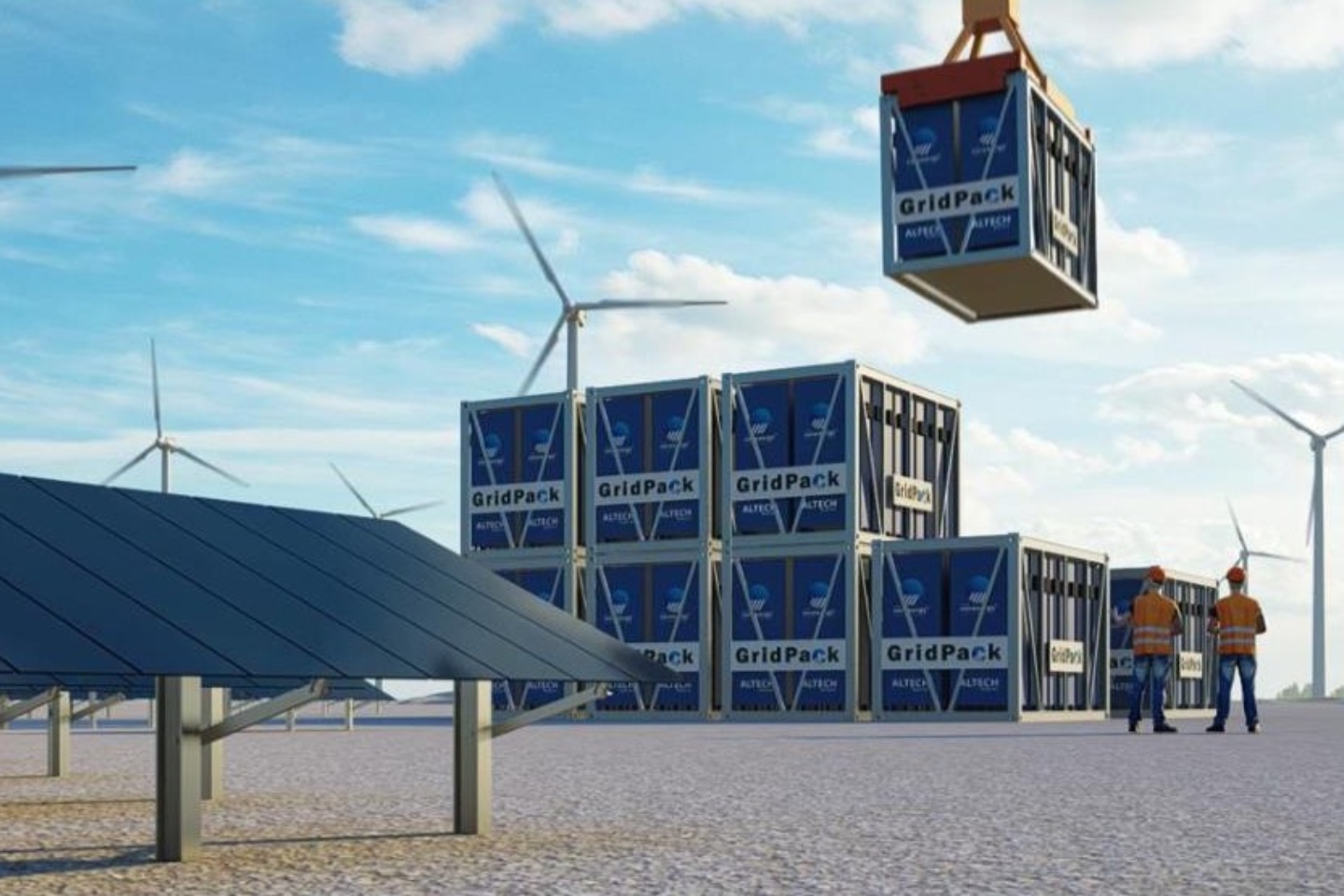European-focused Altech Batteries has unveiled its preliminary specifications for two products aimed at the burgeoning grid power storage battery market, in a move it predicts will kickstart discussions with potential buyers. The storage batteries, which the Subiaco-based company says outperforms lithium-ion batteries on many levels, will be built in Germany in a joint venture with its partner, Fraunhofer IKTS.


European-focused Altech Batteries has unveiled its preliminary specifications for two products aimed at the burgeoning grid power storage battery market, in a move it predicts will kickstart discussions with potential buyers.
Altech is banking on countries such as Germany needing reliable energy storage solutions to successfully transition to a “green-energy” future, so as not to be at the whim of weather-dependent renewable energy sources such as solar and wind.
Just as energy storage is needed when the sun doesn’t shine or when the wind fails to blow, it is also required when excess renewable energy is discharged to the ground, meaning a substantial waste of electrical power.
Subiaco-based Altech says Germany alone wastes EU$2 billion (AU$3.18 million) annually, while California chews through US$3 billion (AU$4.4 billion).
Enter the two Altech products – the ABS 60 battery pack and its bigger ABS 1000 grid-pack – and the preliminary specifications which are now set. Management says they are fireproof, boast all-weather applications and have a lower-levelized storage cost compared to lithium-ion batteries.
The company has three battery-focused projects, including its sodium chloride solid state Cerenergy batteries, which use common table salt and nickel rather than lithium-ion, copper, graphite and cobalt and which are perhaps closest to commercialisation. There is also a 4500 tonnes per annum high-purity alumina (HPA) project in Malaysia to deliver feedstock for lithium-ion and future solid state batteries, in addition to its patented Silumina Anodes technology to combine alumina-coated silicon and graphite in lithium batteries at a plant in Germany, which will target the electric vehicle battery market.
Altech’s battery technology is a product of its long-running partnership with German battery institute, Fraunhofer IKTS. The pair have a joint venture (JV) agreement, with plans to construct a 100MWh production facility on Altech’s land in Saxony, Germany.
That plant will produce Cerenergy battery modules to provide grid storage solutions to the market.
The JV’s ABS 60 will weigh 800kg and measure 500mm by 2330mm by 1100mm. It will have a nominal energy capacity of 60KWh, a nominal voltage of 600V DC and a voltage range stretching from 4120V DC to 670V DC.
It has a 24-hour cycle capability without interruptions, a design lifecycle of longer than 15 years and ambient operating temperature of between -40 degrees C and 60 degrees C. Its target market is commercial applications.
Altech’s ABS 1000 is the 1MWh GridPack aimed at larger-scale operations such as industrial power back-up and grid storage. It comprises 18 batteries in the size of a 6m-high sea container and weighs less than 17 tonnes.
Management says it has “negligible” maintenance costs, may lie idle for long periods of time, will start without any capability loss and comes as a “plug and play, ready to operate” unit.
Importantly, Altech says its GridPack has been designed to ensure complete protection from the elements and does not require any shelter or housing. Unlike lithium-ion batteries, they do not require cooling fans, or any component with moving parts, ensuring they are noise-free and can be used in residential neighbourhoods.
With the global grid energy storage market predicted to grow by a 28 per cent compound annual growth rate in the coming decade – and be worth about US$15.1 billion (AU$22.25 billion) in just four years’ time – green eyes will be focused on Altech to see if its technology can do some good and make money at the same time.
Is your ASX-listed company doing something interesting? Contact: matt.birney@businessnews.com.au














